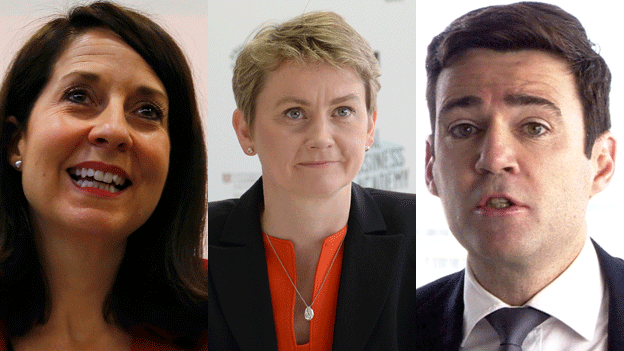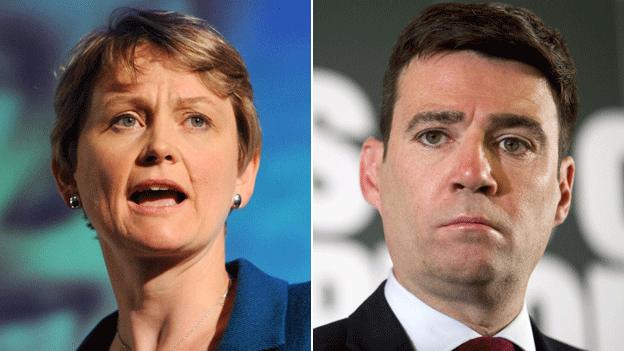Immigration: Labour was 'squeamish' says Yvette Cooper
- Published
Yvette Cooper: "It's about not being squeamish about talking about immigration"
Labour was "squeamish" about talking about immigration in the past, Yvette Cooper has said.
In an interview broadcast on BBC Newsnight, the party's leadership contender said immigration needed to be "controlled" and "managed".
She also said that "ideally" the Labour government should have had a financial surplus before the crisis of 2008.
Ms Cooper is one of four MPs who have announced they will stand for the Labour leadership.
Andy Burnham, Liz Kendall and Mary Creagh are also standing.
Candidates are required to gather the signatures of 35 MPs by 15 June to make it on to the ballot paper.
The winner will be announced on 12 September.
'Controlled and managed'
Speaking to Newsnight's chief correspondent Laura Kuenssberg, Ms Cooper said: "I think it's not so much about exactly what the detail of the policies are, it's about not being squeamish about talking about immigration.
"Because it's important for Britain, but it has to be controlled and managed so that the system is fair... we should talk about the way we control and manage it but also the way you can benefit from high skilled migration from students coming from Britain."
Ms Cooper also said people like Alan Milburn and John Hutton, who have called for the party to skip a generation when choosing a new leader, were "trapped in the past".
She said they were "fighting battles from 2004 and 2005... wanting to settle old scores from the Labour Party's history."
She also said that she made "no apology for having experience" when the job is so tough.
Asked if it was wrong for the party to have run up a deficit before the financial crash, Yvette Cooper admitted: "I'm saying that ideally you would have had it in surplus, so yes, we should have had it in surplus by that time.
"However, what was the consequence of that? The Tories want to say that either it caused the financial crisis which it clearly didn't, or they want to say that it made it harder to deal with the financial crisis which it also didn't."
- Published29 May 2015

- Published13 May 2015
